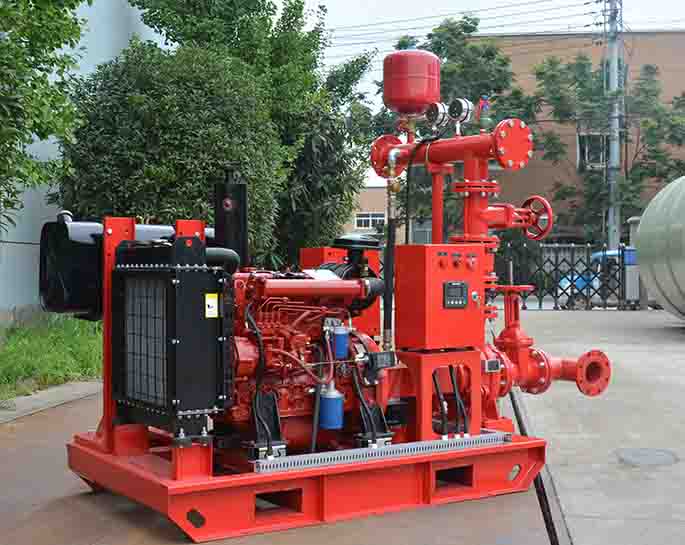How should fire pumps be selected, and what are the differences from ordinary domestic pumps?
Feb 21, 2023
Share:
Fire pumps should be selected based on the specific requirements of the application. The primary differences between fire pumps and ordinary domestic pumps are the materials used, the operating pressures, and the flow capacities. Fire pumps are designed to withstand higher operational pressures and flows than domestic pumps and must be able to handle the increased pressure and flow created by the fire system. Additionally, fire pumps are typically built with corrosion-resistant materials to ensure they can withstand the high-temperature and chemically-active environment caused by fire.
When selecting a fire pump, the most important consideration is to ensure that the pump is suitable for the fire protection system in which it will be used. Fire pumps must be able to provide the necessary pressure, flow rate, and head for the system in which it will be used. Fire pumps typically have higher pressure and flow requirements than domestic pumps. Fire pumps must also be capable of operating at higher temperatures than domestic pumps and must be able to handle the corrosive chemicals and gases present in fire suppression systems. Additionally, fire pumps must be designed to meet stringent NFPA guidelines and include features such as thermal overload protection, pressure switches, and/or bypass valves.
Fire pumps should be selected based on the building’s fire protection system requirements, including the size and type of the system, the type of fuel source, the required flow rate, and the pressure requirements. Fire pumps must be specifically designed for fire protection systems and are built to higher standards than domestic pumps. Fire pumps are designed to provide a steady flow of water under high pressure, whereas domestic pumps are designed to provide a variable flow of water at lower pressures. Fire pumps must also be able to withstand extreme temperatures and pressure changes, and must be certified by a regulatory agency.
Fire pumps should be selected based on the type of application and the specific requirements of the fire protection system. Fire pumps are designed to provide a high level of pressure and flow rate, which is necessary for fire sprinkler systems, fire standpipe systems, and fire hydrant systems. Fire pumps are made with components that are resistant to corrosion, and fire pumps are typically powered by electric motors or diesel engines. Fire pumps also have higher discharge pressures than domestic pumps, which are used to supply water to a home or business.

When selecting a fire pump, the most important consideration is to ensure that the pump is suitable for the fire protection system in which it will be used. Fire pumps must be able to provide the necessary pressure, flow rate, and head for the system in which it will be used. Fire pumps typically have higher pressure and flow requirements than domestic pumps. Fire pumps must also be capable of operating at higher temperatures than domestic pumps and must be able to handle the corrosive chemicals and gases present in fire suppression systems. Additionally, fire pumps must be designed to meet stringent NFPA guidelines and include features such as thermal overload protection, pressure switches, and/or bypass valves.
Fire pumps should be selected based on the building’s fire protection system requirements, including the size and type of the system, the type of fuel source, the required flow rate, and the pressure requirements. Fire pumps must be specifically designed for fire protection systems and are built to higher standards than domestic pumps. Fire pumps are designed to provide a steady flow of water under high pressure, whereas domestic pumps are designed to provide a variable flow of water at lower pressures. Fire pumps must also be able to withstand extreme temperatures and pressure changes, and must be certified by a regulatory agency.
Fire pumps should be selected based on the type of application and the specific requirements of the fire protection system. Fire pumps are designed to provide a high level of pressure and flow rate, which is necessary for fire sprinkler systems, fire standpipe systems, and fire hydrant systems. Fire pumps are made with components that are resistant to corrosion, and fire pumps are typically powered by electric motors or diesel engines. Fire pumps also have higher discharge pressures than domestic pumps, which are used to supply water to a home or business.


.png)
.png)

.png)


